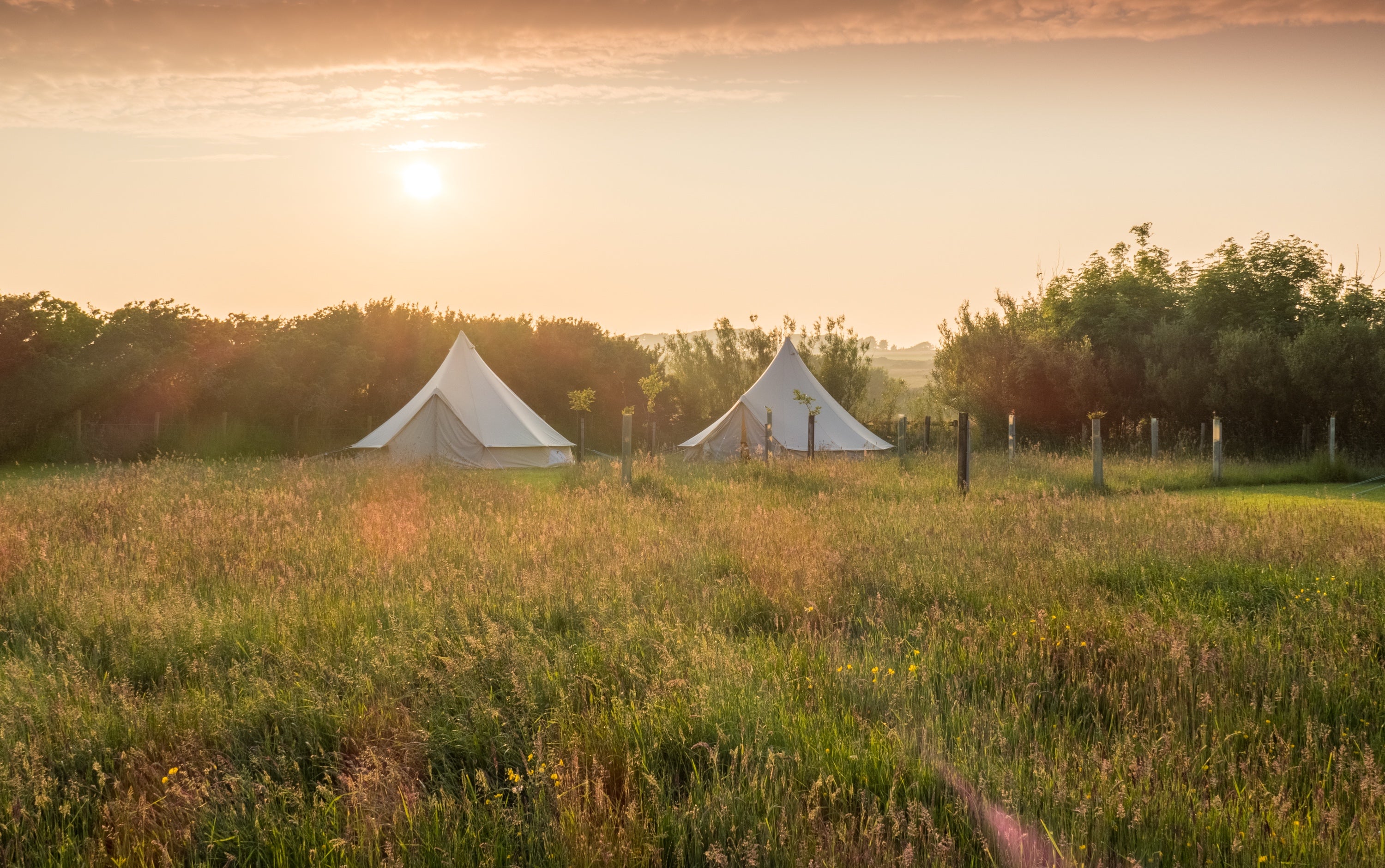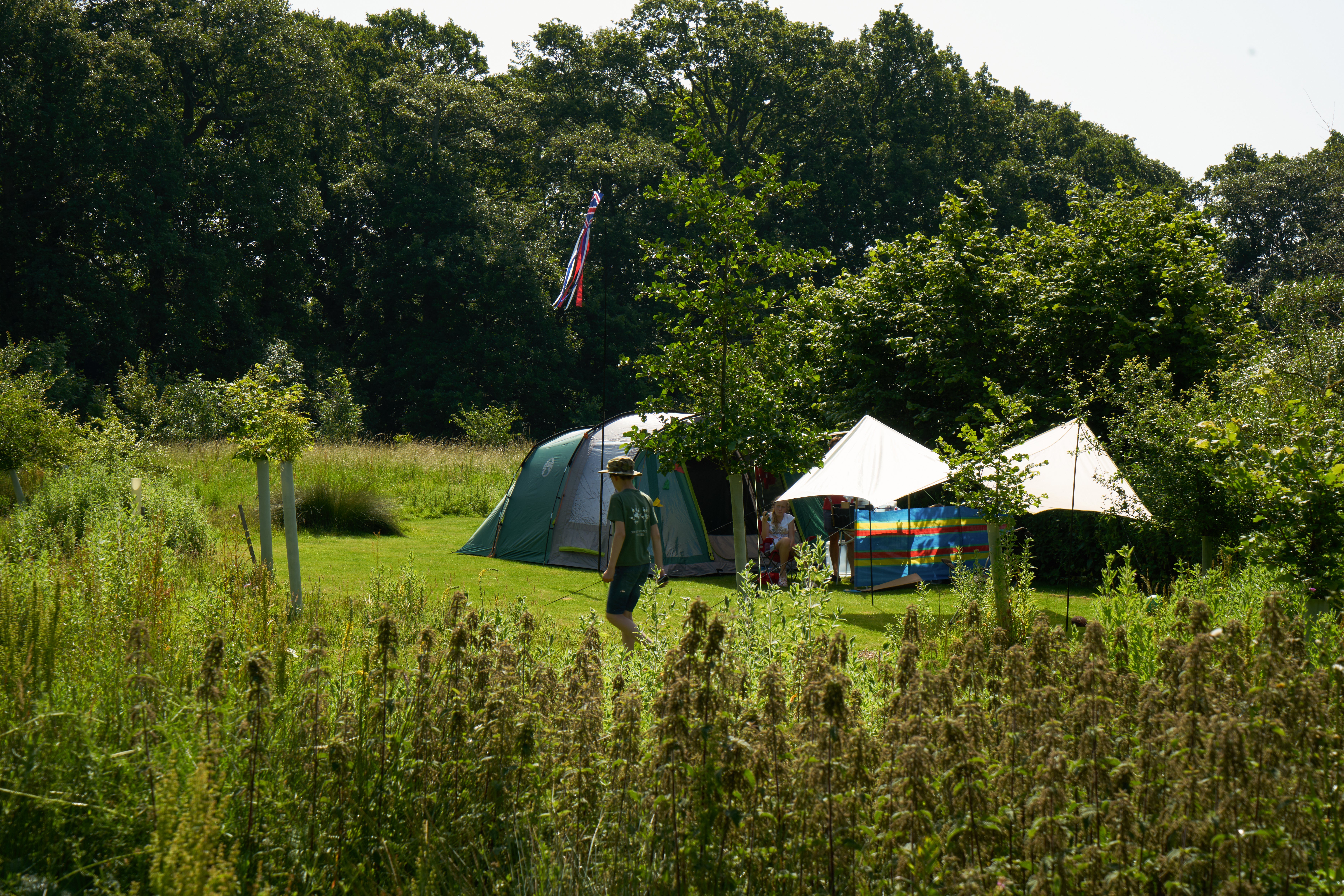How to be a responsible camper
As the UK readies itself for another rise in domestic tourism, it’s a good time to end our toxic relationship with disposable camping, says Lizzie Cernik

The pandemic may have scuppered international travel, but the popularity of traditional British camping holidays is set to boom in 2021. Opportunities to roast marshmallows and drink ourselves silly by a roaring fire are being snapped up by holidaymakers, with many sites fully booked until September. Yet despite the growing demand for camping holidays in scenic locations, environmental damage isn’t a big consideration for everyone.
Last summer the National Trust reported an unprecedented rise in fly camping and rubbish dumping, with rangers spending up to 20 per cent of their time cleaning up the debris left behind. In Doverdale, a popular destination in the Peak District, 170 large bin bags of rubbish were collected over just three days in June, with tents, clothing and air beds discarded by visitors.
As the UK readies itself for another rise in domestic tourism, it’s a good time to end our toxic relationship with disposable camping, and discover the little ways we can benefit the communities we visit.
Buying better
Joe Putman, who runs Wardley Hill, a back-to-basics campsite in Norfolk, recommends doing your research carefully before buying any camping equipment.
“If you camp often it’s worth investing in something sustainable like a canvas bell tent,” he says. Companies like BCT Outdoors and Lotus Bell Tents sell a UK-made range, which are built to last a lifetime and be passed on through generations. They’re not cheap, but it’s a more cost-effective long-term solution for people who regularly visit campsites.

He also highlights the importance of choosing the right site and equipment for your needs. “Our focus at Wardley Hill is on nature. Our site has composting toilets, no electricity and no wifi. It’s very different to the Eurocamp style places that people associate with camping,” he says. “A lot of families opt for large tunnel tents that get cold at night. I suggest buying one with just enough space to play cards together inside. Know what’s right for you before you buy it or you’ll end up wasting money and materials.”
Tent sharing
For those dipping their toes into the world of camping, buying your own gear is an unnecessary expense. That’s why Rebecca Heaps launched Tent Share, an Airbnb-style lending platform where people can rent tents on a short-term basis.
“It helps to reduce waste and avoids people getting duped by ‘green washing’, which is marketing to make single-use products appear more eco-friendly than they are,” she says. Heaps works in collaboration with tent recycling company, Camplight, run by Kieran van den Bosch.
Know what’s right for you before you buy it or you’ll end up wasting money and materials
“In 2010 I started going to festivals and rescuing tents. I’d then clean them and fix them up so they can be reused,” he says. The tents are rented out to holidaymakers through Tent Share, as well as festivals and live events. Vanden Bosch is currently working on a new sustainable tent business called Pitch For You, which will launch at an event at the Birmingham NEC in October.
“We’ve developed a tent made from recyclable materials for festivals. Events will be able to sell the option to their customers to discourage people from bringing single-use gear. As the demand increases we expect to see more festivals signing up. It’s more convenient for people, as well as being eco-friendly.”
Pre-pitched tents are also widely available at holiday camps, along with sustainable structures, such as tree houses, shepherd huts and pods. The Greener Camping Club, which was established in 2014, offers a wide selection of glamping and camping options in eco-friendly spaces. All sites have clearly marked recycling and provision for battery disposal, at least one source of renewable energy, and camping areas of two acres or more. In addition to tents, they encourage members to rent outdoor equipment where possible, to avoid clogging landfill sites with cheap disposable items such as wetsuits, surfboards, and hiking gear.

“People have an unrealistic expectation of how much this type of stuff will get used,” says Kevin Bird, one of the founders of the club. “Quality equipment is expensive and people tend to cut corners. Renting is a more sustainable alternative.”
Tackling food waste and local damage
As well as abandoned equipment, food waste is a common problem across campsites. Even the Greener Camping Club, whose visitors identify as eco-conscious, estimates that 30 per cent of people throw food away at the end of a trip. Holidaymakers can minimise this by planning how much they will consume, rather than rushing in for a supermarket sweep. Apps like Too Good to Go and Olio are tackling food waste, as well as helping people to get last-minute bargains. Visitors can also support the places they visit by shopping locally, and eating at small independent cafes and bars.
Some holiday camps, such as the Secret Campsite in East Sussex, offer an onsite shop selling local produce, to make the process more convenient for campers. “We have local beers, ciders, kombucha and apple juice made onsite, as well as other local products,” says the site’s founder, Tim Bullen. “Eco-camping is a combination of lots of things. For example, we look for alternative energy sources, ways to save energy and water, as well as spacing campers out so it never gets too busy.”
Measures include recycling shower water and heating energy when possible, encouraging guests to minimise their usage, investing in solar panels and partnering with local wildlife charities to research the best ways to improve the landscape. Thanks to its efforts, the Secret Campsite has created a wildlife hub, attracting rare species including adders and great crested newts. “Lockdown has been an eye opener for many people and they are realising the value of connecting with nature and protecting spaces,” says Bullen.
Outside of campsites, visitors can minimise their impact on the environment by planning their excursions in advance. According to Visit Cornwall, since bookings became mandatory for attractions due to the pandemic, pressure on car parks, restaurants and other areas has been alleviated. Staggering arrivals in the busier months has been beneficial for the environment, local businesses and improves the overall experience for tourists. It means venues can better anticipate how many staff will be needed and how much food they’ll require, which results in less waste. In the coming years, the tourism board is hoping that technology will be able to further support people’s holiday planning, for example by using satellites to alert them to areas that are already packed with cars and saving them an unnecessary drive.
For the Greener Camping Club, sustainable camping requires the support of all holidaymakers and campsites. “A lot of people will live sustainably at home but forget about it when they come away,” says Bird. “We want to encourage people to try and minimise their impact on the environment everywhere they go.”
Join our commenting forum
Join thought-provoking conversations, follow other Independent readers and see their replies
Comments
Bookmark popover
Removed from bookmarks